Arizonans speak out following announcement of 17% Mexican tomatoes duty
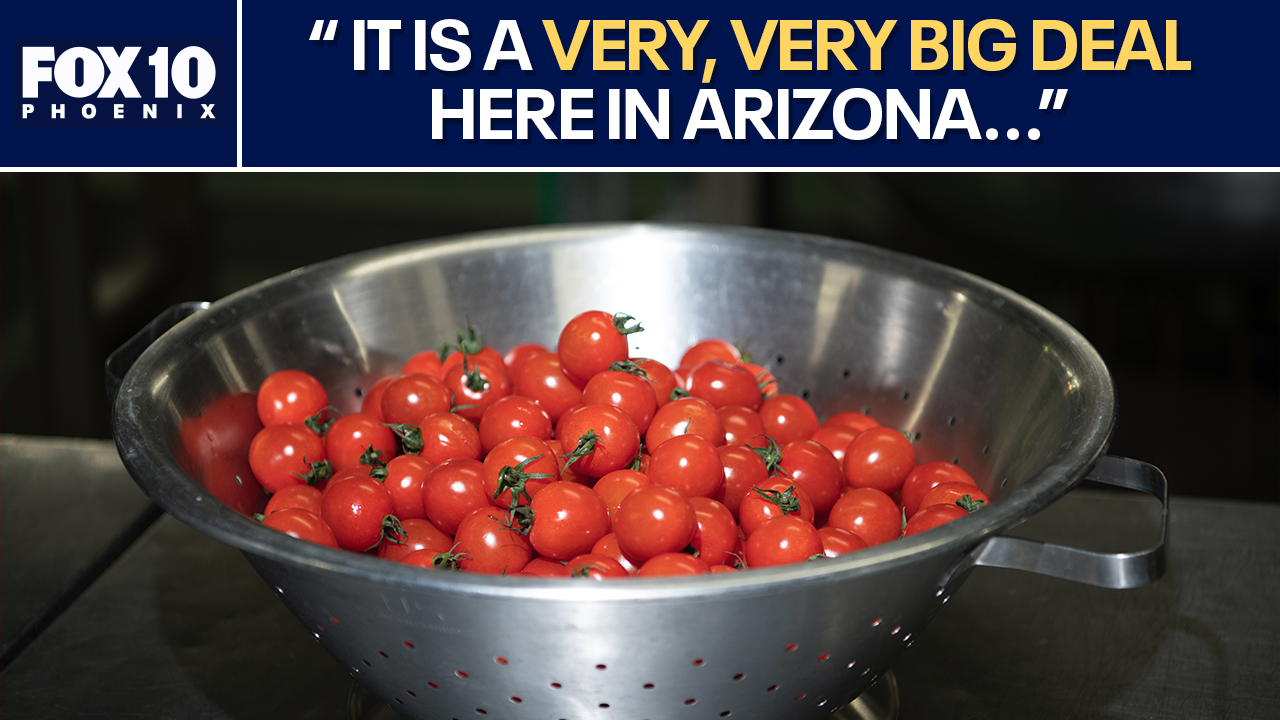
Arizona reacts to 17% tomato tariff
Arizona leaders are weighing in on how a recently-announced 17% tariff on most fresh Mexican tomatoes will affect the Grand Canyon State. FOX 10's Taylor Wirtz reports.
PHOENIX - Tomatoes at the grocery store are probably going to get more expensive soon, as the U.S. government announces a 17% duty on most fresh Mexican tomatoes.
Dig deeper:
This comes after it decided to leave the Tomato Suspension Agreement—a longtime agreement between the U.S. and Mexico regulating tomato imports.
U.S. Secretary of Commerce Wilbur Ross says the tariffs are in defense of U.S. farmers who have "been crushed by unfair trade practices that undercut pricing on produce like tomatoes." He says the move is in line with President Trump’s trade policies and approach with Mexico.
According to the Associated Press, opponents say the import tax will make tomatoes more expensive for U.S. consumers.
Arizona farmers and politicians react
Local perspective:
Those keeping tabs on Arizona’s economy say Arizona is set to be the second most negatively impacted state, after Texas, from reduced imports.
"What growers can afford a 17%?" asked Nogales Mayor Jorge Maldonado. "Is that going to eliminate all the medium and small growers?"
Maldonado, whose city is one of the largest ports of entry between the United States and Mexico, calls the decision ‘detrimental’ to his city, saying tomato imports are its livelihood.
"I think 100% of the city depends on it," Maldonado said.
Kimber Lanning, CEO of Local First Arizona, calls this a blow to all of Arizona.
"The cross-border tomato economy is roughly 70% of the U.S. market," Lanning said. "That, in general, supports about $3.4 billion in economic stimulation here in Arizona, as well as supports 22,000 jobs. It is a very, very big deal here in Arizona."
Lanning said anything involving tomatoes will get more expensive.
"There's no doubt we're going to see an increase in prices, and that's going to impact, obviously, restaurants, but also food manufacturing," Lanning said. "That's going to be your Italian tomato paste, your salsas."
While many say Arizona and Texas may see the most negative impacts from this, Lanning said Florida tomato producers will likely benefit the most.
The other side:
On July 16, we spoke with Laura and Sarah Davis, whom indicated they could benefit from the tomato duty. The two took their stimulus checks in 2020 and created Two Sisters Tomatoes in Camp Verde.
"I like to tell people that my hands look the way they do because I’m the one out there growing the produce," Laura said.
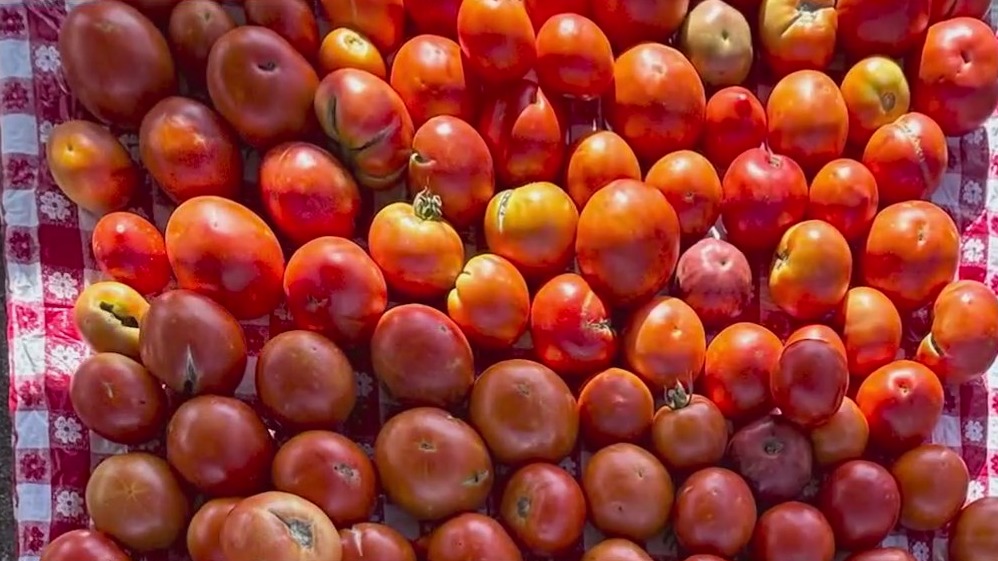
Tomato duty divides consumers and AZ farmers
The decision to levy a 17% duty on fresh Mexican tomatoes has prompted a debate on whether the tariff is good or bad, and depending on who you ask, the answer will be different. FOX 10's Ashlie Rodriguez reports.
The two sell their products at farmer's markets around Flagstaff and Prescott, and they are hoping to get their products into local restaurants. However, both say trying to compete against Mexico's lower prices is tough.
The new tomato duty could give them a leg up, and push people to give their tomatoes a chance.
"You are supporting local families. You’re supporting local communities," said Laura. "This isn’t a about some farmer or some mass production site 700 miles away. The money stays in the community."
Other Arizona politicians react to tomato duty
Governor Katie Hobbs (D), Sen. Mark Kelly (D) and Rep. Andy Biggs (R) have issued letters or statements in response to the tomato duty.
Gov. Hobbs
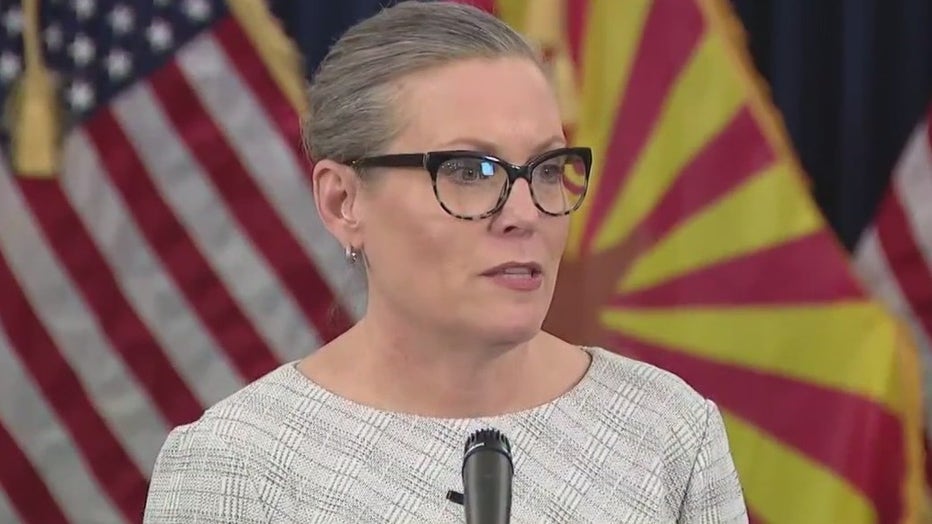
Governor Katie Hobbs (From Archive)
Gov. Hobbs released a statement that reads:
Today, President Trump left the Tomato Suspension Agreement, hiking tariff taxes on Mexican tomatoes by 17%. According to a study by Texas A&M, the decision will put $8.33 billion in economic activity at risk and threaten over 50,000 agribusiness jobs in Arizona and Texas. Arizona Governor Katie Hobs was joined by affected business leaders and elected officials in denouncing the decision:
"Donald Trump’s reckless trade war is raising prices, threatening our economic growth and killing jobs," said Governor Katie Hobbs. "With his latest senseless decision to leave the Tomato Suspension Agreement, he is threatening to kill over 50,000 jobs between Arizona and Texas and forcing Arizonans to pay more at the grocery store, all to benefit Florida farmers. Arizona businesses and families will pay the price for this tax hike that is the latest step in the administration’s reckless trade war."
"This decision will damage trade imports and have severe consequences for Nogales in revenue, employment and trade," said Nogales Mayor Jorge Maldonado. "This is detrimental for the city, state, and country, and negatively affects U.S. consumers and businesses. We must not forget that Mexico feeds America through the border of Nogales, Arizona, and has been doing so for the last 100 years. It is up to Arizona and Sonora to challenge this decision and make sure Washington is aware of these impacts."
"I am not sure people understand the full significance of this," said Chamberlain Distributing President and Owner Jaime Chamberlain. "It may seem simple to say that the US is withdrawing from the agreement, but there needs to be consideration for the dozens if not hundreds of Arizona and US companies and the thousands of local and regional jobs that will be lost if this is allowed to happen. And when you combine that impact with the much higher prices that consumers will pay for quality tomatoes year-round, it is hard to understand why the US has taken this posture."
"Plentiful, high quality, affordable food is dependent on strong regional supply," said Mónica Villalobos, President and CEO, Arizona Hispanic Chamber of Commerce. "This is particularly true for fresh fruits and vegetables, including tomatoes. And the businesses in place to grow, sell, use, and move this commodity help power the Arizona economy as well as elsewhere in the West. A tariff on Mexican tomatoes means fewer, more expensive, less flavorful tomatoes, and the loss of tens of thousands of jobs for our fellow Arizonans."
"After 30 years of consistency, this abrupt policy change will hurt our economy and negatively impact Arizona's food system," said Local First Arizona CEO Kimber Lanning. "The policy will shift costs to Arizona small businesses, restaurants and grocers, which will raise prices, slow hiring and threaten livelihoods. Consumers will see immediate price increases as small businesses and local communities ultimately pay the price."
"Arizona and Governor Hobbs have been out front in the efforts to seek continuation of the Tomato Suspension Agreement," said Lance Jungmeyer, President, Fresh Produce Association of the Americas. "As the U.S. importers and distributors of vine-ripened, greenhouse-grown tomatoes from Mexico, our members are proud of the work they do to bring consumers the fresh, flavorful varieties of tomatoes that they demand, and we are equally proud of Gov. Hobbs for standing up for economic security and jobs in Arizona."
"The decision to rescind the Tomato Suspension Agreement (TSA) would have far-reaching and damaging consequences for our economy, workforce, and American families. The TSA has long ensured a stable, affordable supply of high-quality tomatoes, supporting jobs across agriculture, logistics, retail, and food service industries. Without it, tariffs and supply disruptions will raise prices for consumers and threaten thousands of jobs in states like Arizona," said Greater Phoenix Chamber President and CEO Todd Sanders. "This agreement is a model of fair trade, balancing access to Mexico’s ideal growing conditions with protections for U.S. growers and consumers. Ending it risks destabilizing a critical food supply chain at a time when Americans are already grappling with inflation."
Sen. Kelly
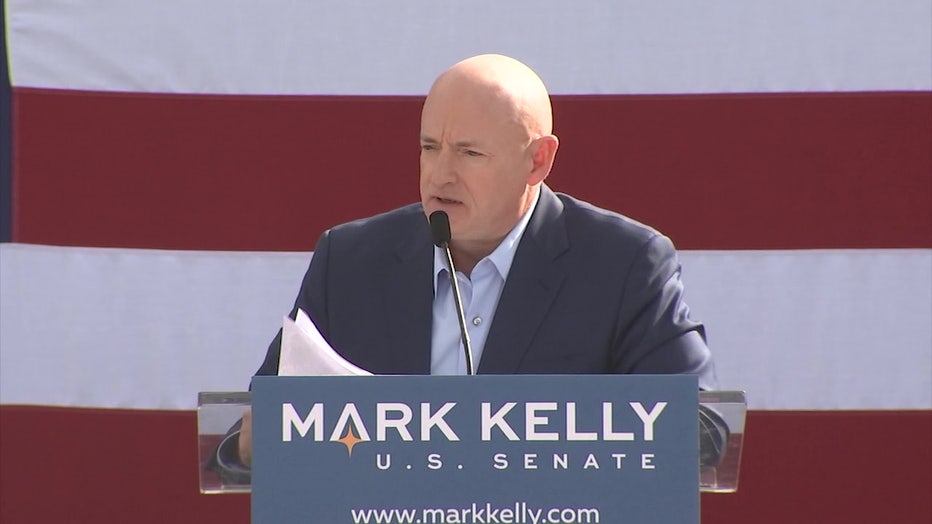
Sen. Mark Kelly (From Archive)
Sen. Kelly issued a statement that reads:
Today, Arizona Senator Mark Kelly released the following statement after the Trump administration officially terminated the 2019 Tomato Suspension Agreement, triggering a 17% tariff on fresh tomato imports from Mexico:
"These tomato tariffs are a billion-dollar tax on Arizona working families. They will raise food prices, threaten the jobs of thousands of warehouse workers and truck drivers in our state, and squeeze small businesses already struggling to keep up with rising costs.
"We know that the administration has not found any violations and that terminating this agreement won’t solve the problems facing American growers. I’ve been pushing the administration to reverse course and keep this agreement in place, and I’ll keep fighting to protect Arizona families from the fallout of this reckless decision."
Background:
Kelly has long opposed the termination of the Tomato Suspension Agreement when it was considered by presidents of both parties. In May, he led a bipartisan letter with Arizona Senator Ruben Gallego and Representatives David Schweikert and Greg Stanton urging the administration to keep the agreement in place. Earlier this year, he visited Nogales to hear directly from warehouse workers and small business owners about the impact these tariffs would have on jobs and food prices.
Rep. Biggs
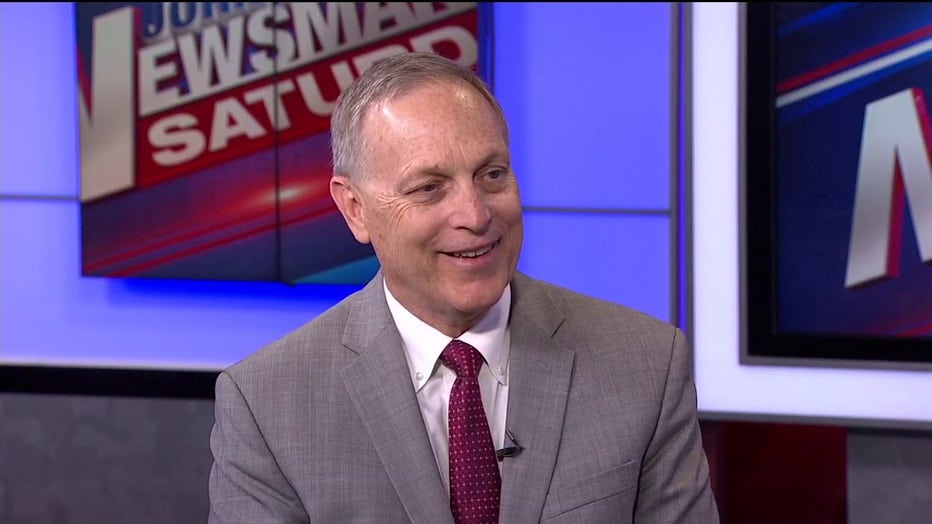
Rep. Andy Biggs (From Archive)
Rep. Biggs has sent a letter to U.S. Secretary of Commerce Howard Lutnick.

